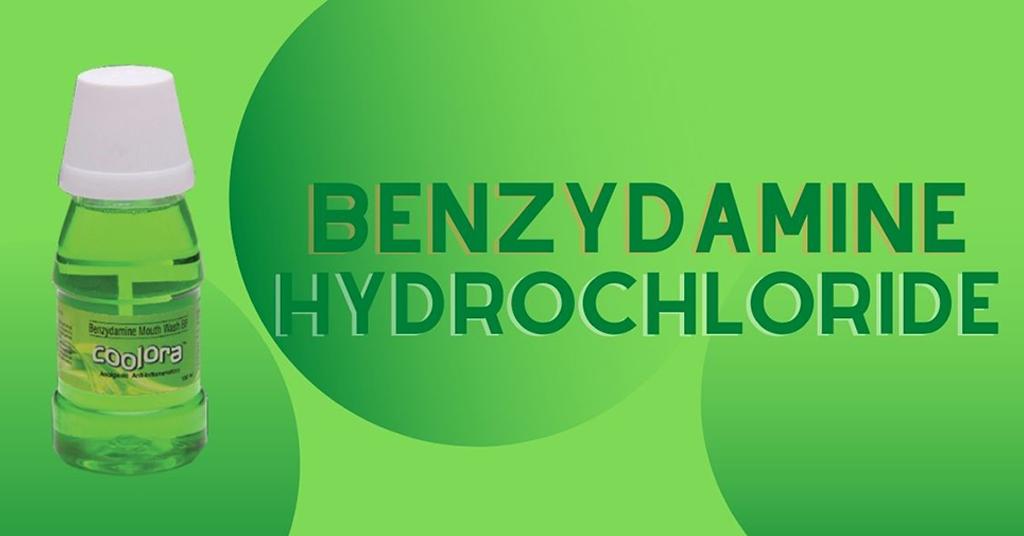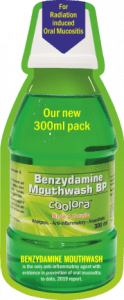Menu

It has no inhibiting effect on amino-acid decarboxylases, which are inhibited by various NSAIDs. Also, Benzydamine has no effect on sulphydryl-group reactivity, contrary to most NSAIDs.
International guidelines in the management of oral mucositis were published in 2004 and then updated in 2007 and 2014.
The Multinational Association of Supportive Care in Cancer and International Society of Oral Oncology (MASCC/ISOO) clinical practice guidelines (2014) recommend that benzydamine mouthwash be used to prevent OM in patients with cancer (level I evidence) – this is in agreement with the latest Bayesian network analysis (2020).
Reference:
Lalla RV, Bowen J, Barasch A, Elting L, Epstein J, Keefe DM, McGuire DB, Migliorati C, Nicolatou-Galitis O, Peterson DE, Raber-Durlacher JE, Sonis ST, Elad S; Mucositis Guidelines Leadership Group of the Multinational Association of Supportive Care in Cancer and International Society of Oral Oncology (MASCC/ISOO). MASCC/ISOO clinical practice guidelines for the management of mucositis secondary to cancer therapy. Cancer. 2014 May 15;120(10):1453-61. doi: 10.1002/cncr.28592. Epub 2014 Feb 25. Erratum in: Cancer. 2015 Apr 15;121(8):1339. PMID: 24615748; PMCID: PMC4164022.
1. Bayesian network analysis (2020)
Chamomile, honey, curcumin and benzydamine mouthwashes may be the most advantageous in terms of the prevention of intolerable Oral Mucositis.
Ref: Zhang X, Sun D, Qin N, Liu M, Zhang J, Li X. Comparative prevention potential of 10 mouthwashes on intolerable oral mucositis in cancer patients: A Bayesian network analysis. Oral Oncol. 2020 Aug;107:104751. doi: 10.1016/j.oraloncology.2020.104751. Epub 2020 May 7. PMID: 32388411.
Link: https://www.sciencedirect.com/science/article/abs/pii/S1368837520301871
2. Network Meta-analysis (2020)
A total of 28 RCTs involving 1861 patients were included. The results of network meta-analysis showed that chlorhexidine, benzydamine, honey, and curcumin were more effective than placebo (P < .05).
Ref: Yu YT, Deng JL, Jin XR, Zhang ZZ, Zhang XH, Zhou X. Effects of 9 oral care solutions on the prevention of oral mucositis: a network meta-analysis of randomized controlled trials. Medicine (Baltimore). 2020 Apr;99(16):e19661. doi: 10.1097/MD.0000000000019661. PMID: 32311938; PMCID: PMC7220734.
Elad, Sharon et al. “MASCC/ISOO clinical practice guidelines for the management of mucositis secondary to cancer therapy.” Cancer vol. 126,19 (2020): 4423-4431. doi:10.1002/cncr.33100


| PRODUCTS | QTY | PRICE | VALUE in INR |
|---|
| PRODUCTS | QTY | PRICE | VALUE in INR |
|---|